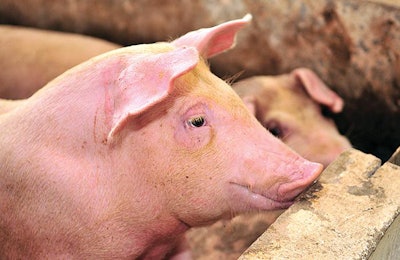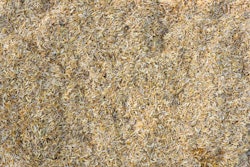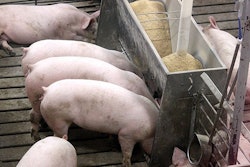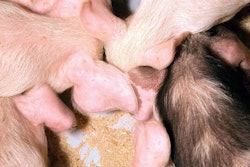
Chinese scientists say feeding pigs plants like cabbage, cauliflower and rapeseed may protect farms from African swine fever (ASF) that is sweeping through China and has more recently been found in Europe.
Researchers at the Pilot National Laboratory for Marine Science and Technology in Qingdao, China, say a molecule found in the plants could deactivate an enzyme used by the ASF virus to assemble its DNA, according to a report.
“Adding the vegetables to feed may help save a pig farm from the epidemic,” Wang Xin, a scientist involved in the research project, said in a report.
While many pig farms have had to cull thousands of pigs, other farms in the infected areas have remained unaffected. Those farms all fed their pigs rapeseed. Researchers said more than 70 species of plants, marine creatures and fungi contain the molecule that could keep ASF from infected herds.
“We suggest farmers consider feeding their pigs these vegetables,” Wang said. “It won’t hurt.”
The laboratory is also working to develop a drug or vaccine to fight ASF.
Outbreaks in Belgium
There have been more than 20 outbreaks of ASF in China in eight provinces since August and, in Belgium, there have been 10 wild boar confirmed to be carrying the virus since early September. ASF is highly contagious and deadly and cannot be cured and has no vaccine.
To prevent further spread of the disease, China has banned the feeding of food waste and the use of pig blood as a raw material in pig feed production. The Ministry of Agriculture and Rural Affairs also will require pig feed producers to submit samples for testing, and any feed that tests positive for the virus will be recalled and destroyed.
In Europe, 60 commercial pig farms in the area of the infected boar in Belgium have been screened for ASF and no infection was found. Nonetheless, the country has quarantined the area and pre-emptively slaughtered up to 4,000 domestic pigs.
According to the U.K.’s National Pig Association, various measures have been put in place, under the EU protocol for ASF outbreak. In the infected zone, the following measures are being taken:
- Monitoring of wild boars in order to get a picture of the situation
- Limiting hunting to avoid dissemination
- Limiting human activities in forest
- Monitoring pig farms
- Complete separation of swine and wild boars
- Movements of swine only with the authorization of the competent authority
- Increasing biosecurity
- Analysis of all sickness/death
Measures are also being enforced throughout the country to reduce the risk of spreading, including:
- A ban on assembling of pigs
- Ensuring domestic pigs avoid contact with wild boars
- Increased biosecurity for the entire sector
- Increased surveillance
Thirteen countries have banned pork products from Belgium: South Korea, China, Taiwan, Belarus, Mexico, The Philippines, Japan, South Africa, Serbia, Singapore, Uruguay, Australia and Malaysia.
View our continuing coverage of the African swine fever outbreak.

















